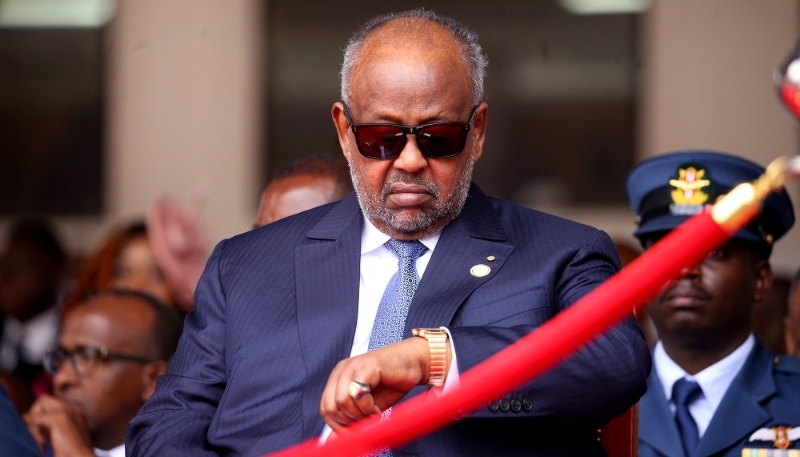Djibouti parliament has voted unanimously on Sunday to lift the presidential age limit, paving the way for long-time leader Ismail Omar Guelleh to seek a sixth term in office.
Guelleh, who has held power since 1999, is currently 77 years old and faces restrictions under the constitution, which prohibits anyone over the age of 75 from running for president.
The amendment, endorsed by all 65 members present, reflects Guelleh’s enduring grip on power.
Though the president has the option to approve the decision or call for a referendum, a second parliamentary vote is anticipated on November 2, which could solidify the change if it gains further approval.
Dileita Mohamed Dileita, the parliamentary speaker, championed the amendment, emphasizing its necessity for national stability amidst regional turbulence.
“The Horn of Africa is a troubled region, and this change is crucial for ensuring the stability of our small country,” he stated, adding that he believes over 80 percent of the population supports the move.
Political analysts suggest that, while there may be discontent articulated on social media, actual opposition voices are stifled in a country with a poor record on freedom of expression.
Sonia le Gouriellec, a Horn of Africa specialist, expressed concerns that dissent will continue to struggle for visibility in the autocratic political climate.
Guelleh has previously hinted at the possibility of extending his rule, stating in a May interview, “I love my country too much to embark on an irresponsible adventure.”
His party, the Union for the Presidential Majority, maintains a stronghold in the legislature, having gained over 97 percent of the vote during the last election in April 2021.
With military bases from the United States, France, and China located within its borders, Djibouti holds a strategic position in global trade routes, further complicating the political dynamics in this small yet significant nation.



















